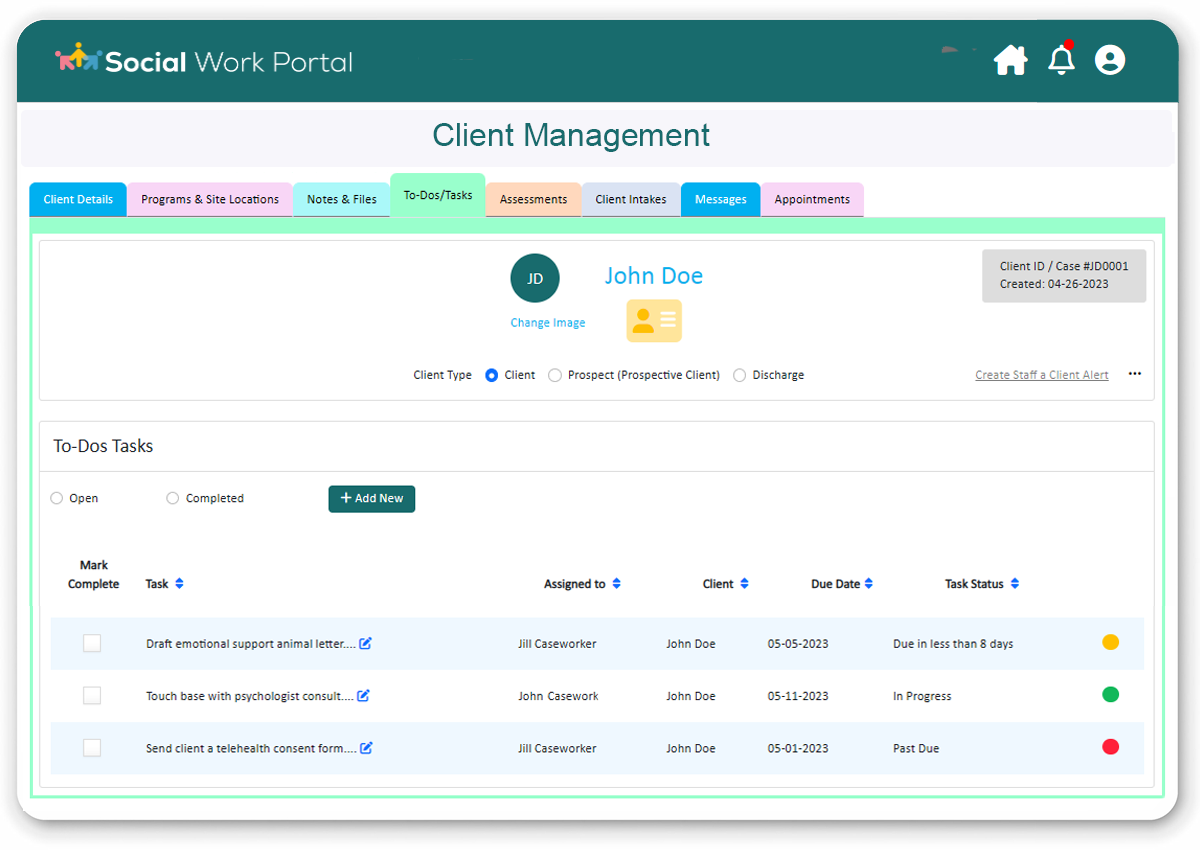Helpful Tools and Strategies for the Mental Health Social Worker
With the world changing fast and holistic care making its way into social work and mental health settings, it’s important to continually seek out new knowledge. This comprehensive guide explores the essential resources for mental health social workers in 2024.
Mental health social workers are the bridge between clinical treatment and social realities. They address the complex needs of individuals and families navigating mental health challenges.
Finding success in this rewarding profession requires a strong foundation of knowledge, access to valuable resources, and the ability to leverage technology for enhanced practice.

Watch a summary below:
Story Highlights
|
What’s the Role of a Social Worker in Mental Health?
Professionals in social worker mental health jobs play a crucial role in the field of mental health, providing support, advocacy, and therapy to individuals facing psychological challenges. They are often the first point of contact for those seeking help, offering a compassionate ear and professional guidance.
Those in the mental health social worker role assess the needs of their clients, develop treatment plans, and connect them with the necessary resources and services. They act as advocates, counselors, and support systems, collaborating with psychologists, psychiatrists, and other healthcare professionals to ensure a holistic approach to mental healthcare.
Social work and mental health professionals work in various settings, including hospitals, schools, and private practices. Their intervention can be life-changing, offering hope and practical solutions to those in need. By addressing both the psychological and social aspects of mental health, social workers contribute significantly to the well-being of individuals and the broader community.
Do you have any questions about social work mental health jobs or roles? Please reach out and let us know!
Empowering Social Work Mental Health: Essential Resources for Effective Practice
With empathy as their compass and expertise as their map, accredited mental health social workers play a pivotal role in fostering healing and resilience within their communities. Yet, the path they tread is not without its challenges. The landscape of mental health is ever-evolving, presenting social workers with a terrain rife with complexities and uncertainties.
Comprehensive resources equip social work in mental health professionals with the tools they need to traverse this dynamic landscape effectively.
Here are some of the benefits resources provide to those in mental health social worker jobs:
Importance of resources for mental health social workers:
- Informed Practice: Resources provide access to cutting-edge knowledge, enabling practitioners to make better-informed decisions.
- Professional Development: Resources offer avenues for ongoing professional development and expanded skill sets.
- Ethical Guidance: Resources provide ethical guidelines and frameworks, equipping those in mental health social work jobs with the tools to uphold the highest standards of integrity, confidentiality, and professional conduct.
- Self-Care and Resilience: Resources offer strategies for self-care and resilience, helping safeguard against burnout and compassion fatigue.
- Interdisciplinary Collaboration: Resources foster interdisciplinary dialogue and collaboration, promoting holistic approaches to client care.
Now, let’s get into the essential social work and mental health resources that you can leverage to bolster your practice.
Building Your Knowledge Base
Professional Associations and Organizations
Joining professional organizations like the National Association of Social Workers (NASW) and the Clinical Social Work Association (CSWA) provides access to valuable resources, continuing education opportunities, and networking with peers. These organizations also offer specialized sections or divisions dedicated to mental health social work, providing targeted resources and support.
Online Resources and Databases
Numerous online resources offer valuable information on mental health conditions, evidence-based interventions, and practice guidelines. The National Institute of Mental Health (NIMH) website is an excellent starting point, offering a wealth of reliable information on social work mental health topics in a user-friendly format. Additionally, subscribing to reputable mental health publications and online journals can keep you updated on the latest research and best practices.
Clinical Supervision
Regular supervision from a qualified clinical supervisor is crucial for the professional development of social workers and mental health professionals and for ensuring ethical practice. Supervisors can provide valuable feedback, guidance on complex cases, and help navigate ethical dilemmas that may arise.
Essential Clinical Tools and Assessments
Standardized Mental Health Assessments
Several standardized assessments are used to diagnose mental health conditions and track treatment progress. They’re a core tool of those in social worker mental health jobs. Familiarizing yourself with tools like the Beck Depression Inventory (BDI) or the Generalized Anxiety Disorder 7-Item (GAD-7) can provide valuable data for clinical decision-making.
Evidence-Based Treatment Manuals
Numerous evidence-based treatment manuals are available for various mental health conditions, such as Cognitive Behavioral Therapy (CBT) for depression or Dialectical Behavior Therapy (DBT) for borderline personality disorder. These manuals provide a structured framework for therapy sessions and ensure interventions are aligned with best practices.
Cultural Competency Resources
Providing culturally competent care is essential for effective mental health social work. Resources like the National Center for Cultural Competence (NCCC) offer training materials and guidance on culturally sensitive assessment and intervention approaches.
Please let us know if you have any feedback you’d like to share about social workers and mental health or social worker mental health jobs. We’d love to hear from you!
Expanding Your Reach: Technology in Mental Health Social Work
Telehealth Platforms
Telehealth platforms have revolutionized mental health care delivery, allowing those in mental health social worker jobs to connect with clients remotely. Familiarizing yourself with secure video conferencing platforms and HIPAA compliance guidelines is key to utilizing telehealth effectively.
Social Media and Online Support Groups
While exercising caution due to ethical considerations, understanding the role of social media and online support groups in mental health can be beneficial. Some platforms offer opportunities for peer support and can be a valuable resource for clients between therapy sessions.
Case Management Software
Many social work and mental health practitioners and therapists leverage cloud-based case management software for documentation, scheduling, reporting, and client data management. Learning to navigate case management software efficiently can streamline your workflow and ensure accurate record-keeping.
Advocacy and Community Resources
Government Websites and Databases
Government websites like the Substance Abuse and Mental Health Services Administration (SAMHSA) and the National Alliance on Mental Illness (NAMI) offer valuable resources for mental health professionals. These websites provide information on national mental health initiatives, funding opportunities, and community-based mental health services.
Local Mental Health Agencies
Connecting with local mental health agencies and community organizations allows you to stay informed about local resources available to your clients. These resources may include housing assistance programs, support groups, food banks, and employment services.
Legislative Advocacy Resources
Professionals in mental health social work jobs can play a vital role in advocating for policies that promote mental health awareness, increase access to mental health care, and reduce stigma. Many of the organizations mentioned above offer resources and support for legislative advocacy efforts.
Maintaining Professional Growth and Well-Being
Continuing Education
The field of social work and mental health is constantly evolving. Continuing education courses and workshops can help you stay up-to-date on the latest research, treatment modalities, and ethical guidelines.
Self-Care Resources
Working the role of a social worker in mental health can be emotionally demanding. Prioritizing self-care practices like mindfulness exercises, healthy stress management techniques, and seeking professional support when needed is crucial for maintaining your own well-being.
Peer Support Groups and Mentorship Programs
Connecting with peers who understand the challenges and rewards of the mental health social worker role can be incredibly valuable. Participating in peer support groups or mentorship programs can provide a safe space to share experiences, discuss challenges, and offer support to one another.
Conclusion: Social Workers and Mental Health Resources
Mental health social work is a demanding yet rewarding profession. Equipping yourself with the right resources will empower you to provide effective and compassionate care to your clients.
By staying informed, utilizing technology responsibly, and prioritizing your own well-being, you can navigate the ever-changing landscape of being an accredited mental health social worker and make a significant impact on the lives of those you serve.
Remember, this list is not exhaustive, and the specific resources you utilize will depend on your practice setting, area of specialization, and individual needs. The key is to be proactive in seeking out resources that enhance your knowledge, skills, and ability to deliver exceptional care.
Easy Technology for Mental Health Social Workers
Keep track of case notes, appointments, client demographics, and more in the Case Management Hub platform. It includes multiple built-in social work assessments, plus you can create your own to send to clients!
Learn more & sign up for a free trial today.
FAQ: Social Work in Mental Health
What’s the role of a social worker in mental health?
The role of social worker in mental health includes providing support, advocacy, and therapy to individuals facing psychological challenges. They are often the first point of contact for those seeking help.
Why is it important for those in social work and mental health to seek out resources?
Resources for professionals in social worker mental health jobs are important because they provide help and guidance with informed practice, professional development, ethical guidance, self-care and resilience, and interdisciplinary collaboration.
Where can those in mental health social worker jobs find resources for professional growth and well-being?
Some of the areas where an accredited mental health social worker can find professional growth and well-being resources include continuing education opportunities, self-care resources, peer support groups, and mentorship programs.
Note: Content on this website (socialworkportal.com) is copyrighted and protected under applicable copyright laws. Unauthorized reproduction, distribution, or use of any content from the website, without explicit written permission, is strictly prohibited. Read: Terms of Use.
Social Work Portal Disclaimer: Social Work Portal is not a social work agency and we do not refer social workers. This web site is provided for educational and informational purposes only and does not constitute providing medical advice or professional social and healthcare services. The information provided should not be used for diagnosing or treating a health problem or disease, and those seeking personal medical advice should consult with ... Read our full disclaimer here: Social Work Portal Disclaimer.

Image sources: Stock.adobe.com



